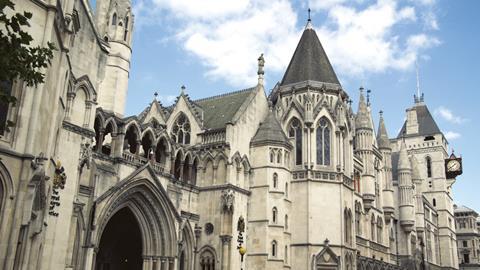Landmark judgment leaves questions unanswered as solicitors voice renewed concerns over liability for property fraud.
Unfinished business remains from the Court of Appeal’s landmark Dreamvar and P&P rulings, published last week.
The underlying issue was simple: a ‘property hijack’ fraudster posed as a homeowner through taking out a tenancy, found a willing buyer, engaged solicitors on both sides and then fled with the cash. The true owner was oblivious throughout.
The court’s problem was that no solicitor involved had demonstrably done anything negligent, yet an innocent buyer was out of pocket and someone had to recompense them.
In Dreamvar the High Court decided the buyers’ solicitors, Mishcon de Reya, should pay up, ostensibly because it was best insured to deal with the £1m shortfall. Conversely, in P&P the buyer sued the imposter’s solicitors, Owen White & Carlin LLP, and estate agent.
The Court of Appeal results? A win for P&P, where solicitors were held liable for their fraudulent client and ordered to repay the £1m also shelled out by the buyers. Claims of negligence and breach of warranty of authority against Owen White & Carlin were dismissed.
In Dreamvar? A score draw. Lord Justice Patten said firms on both sides, Mishcons and Mary Monson Solicitors, should share responsibility and ordered each to make (as yet undetermined) financial contributions. Mishcons won its appeal against the first instance decision that there was no breach of trust by Mary Monson Solicitors, but Patten LJ refused to grant relief under section 61 of the Trustee Act 1925.
Jerome O’Sullivan, partner at London firm Healys, who acted for Dreamvar, said the court had made it clear the vendor’s solicitors have potential liabilities to the purchaser if they have not carried out sufficient client checks. ‘The vendor’s solicitor is in the best position to carry out reasonable due diligence in investigating to verify the vendor’s identity and ownership of the property,’ he said.
Yet the Supreme Court surely beckons. Niall Innes, partner at national firm Mills & Reeve, which represented the selling agents in P&P, said the decision risks making solicitors effective guarantors that a transaction is genuine, without giving any real guidance about what they should do to avoid liability.
‘While there are no clear answers, and it can only be hoped that the Supreme Court is asked to consider the issues, conveyancers face very difficult issues over the coming months,’ Innes said.
The seller’s conveyancer will now want to consider the extent of the disclaimers they offer, while the buyer’s conveyancer may wish to look again at their minimum level of indemnity cover.
The Law Society is already at work on updating the code for completion and associated documents, giving greater clarity as to solicitors’ roles and responsibilities.
Neil Franklin, partner at national firm TLT, said: ‘This is unlikely to be the end of the debate about who is liable for losses in a property hijack case. Solicitors will say the balance has shifted too far towards them, with the purchaser’s solicitors effectively now guaranteeing property transactions.’
In the meantime, solicitors on all sides are best advised to do all they can to make sure they are not another victim of this recurring crime.
































3 Readers' comments